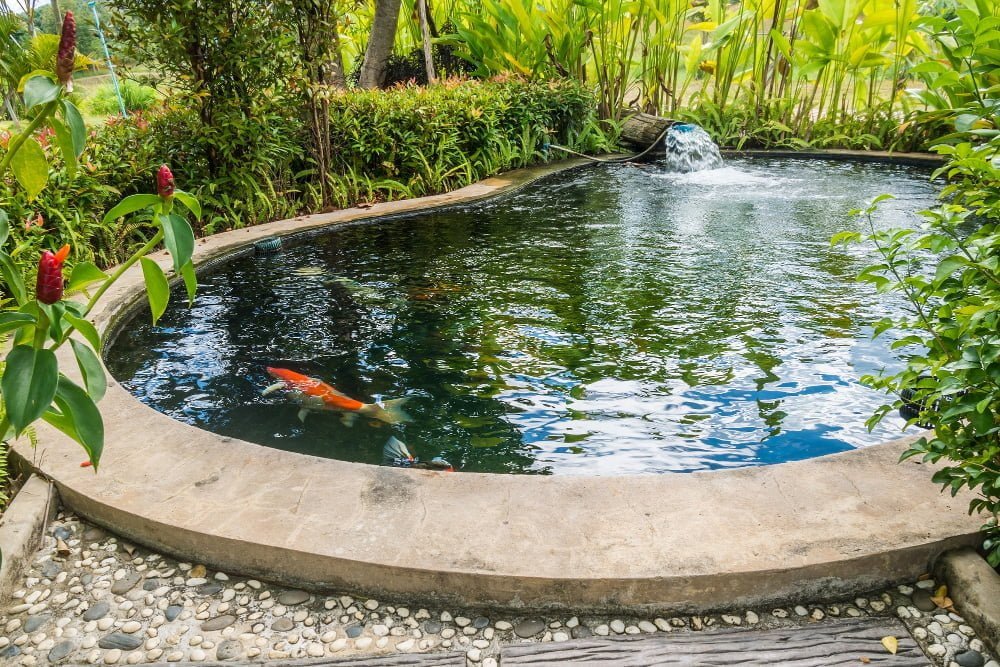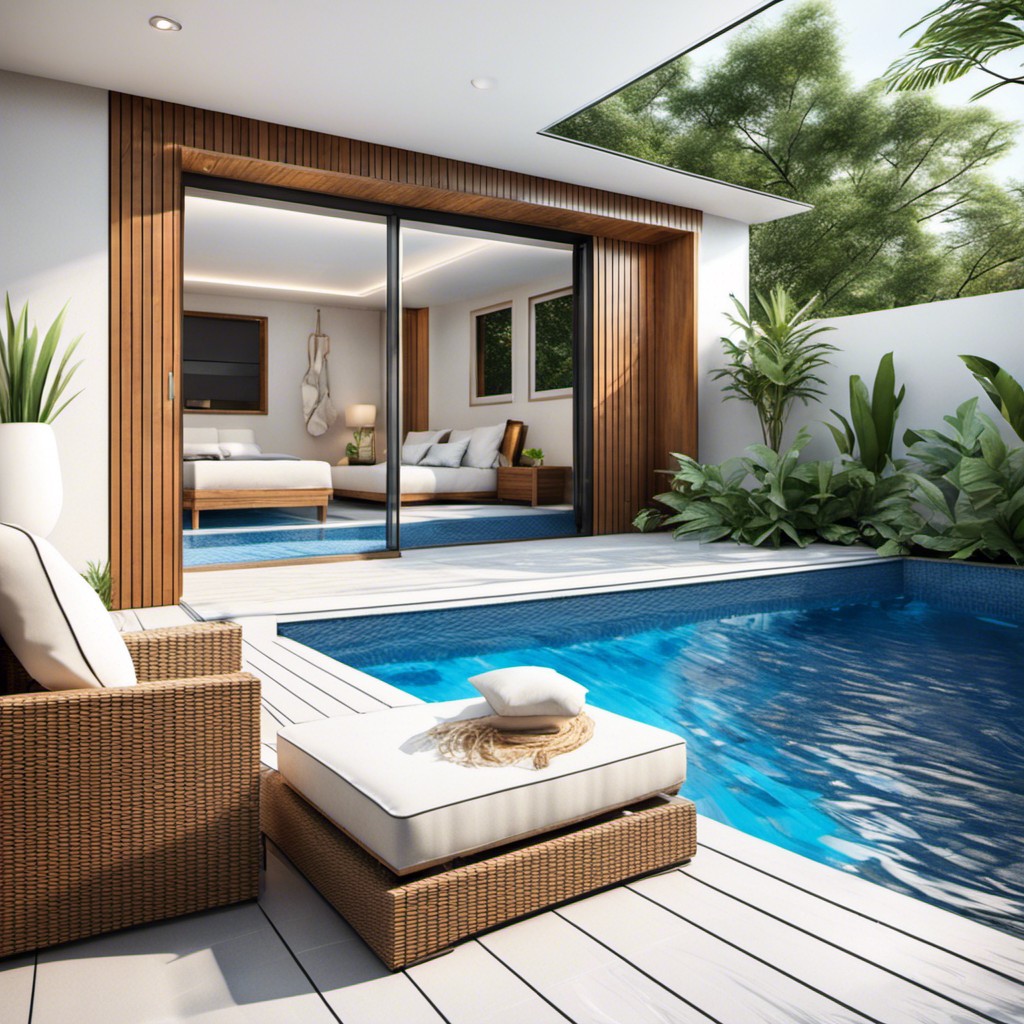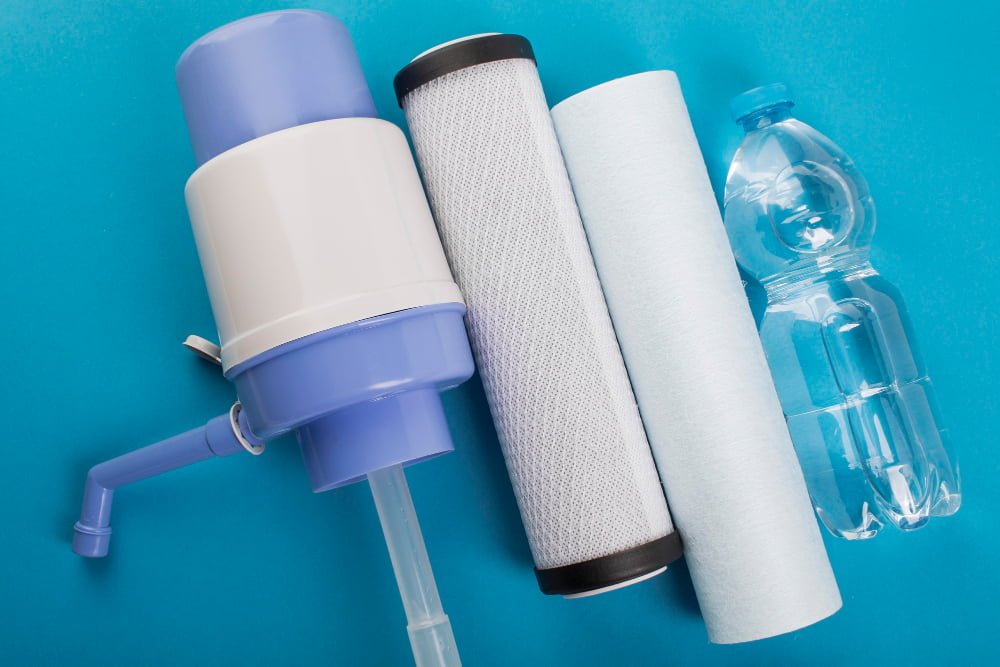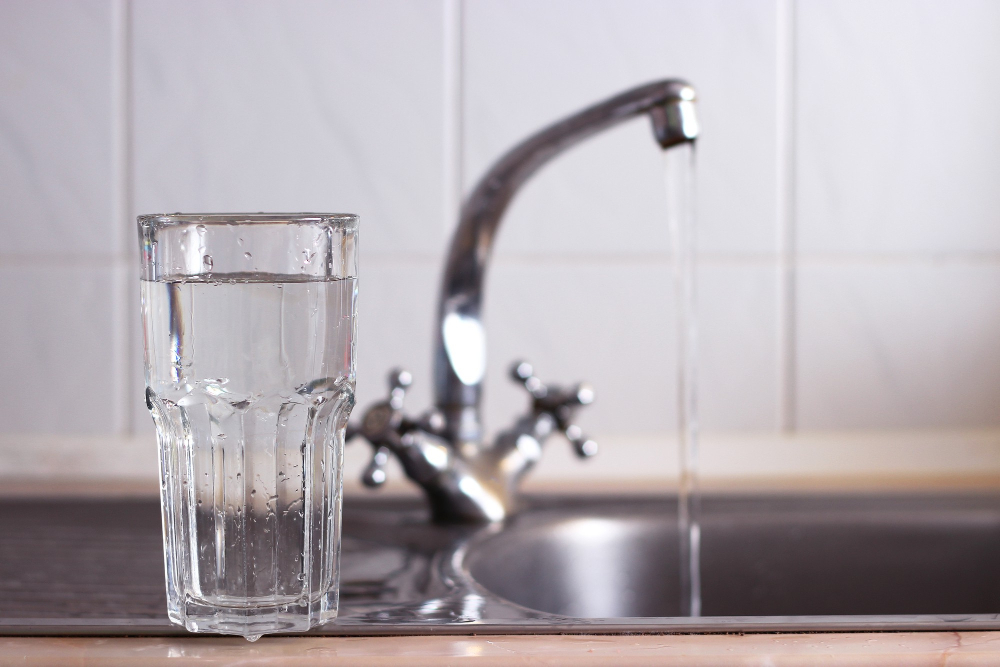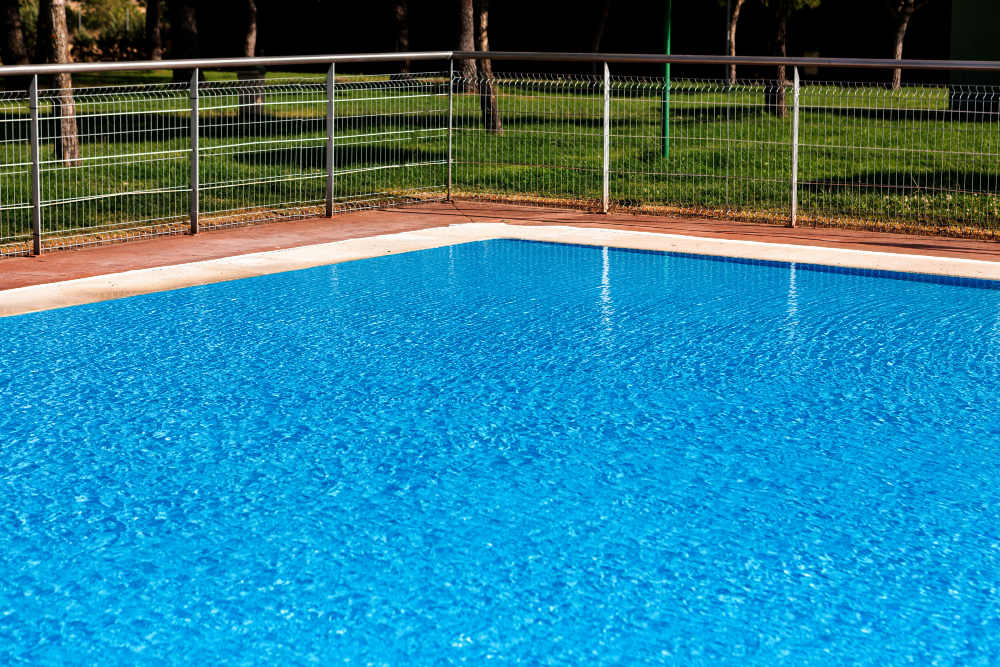Last updated on
Discover refreshing alternatives to chlorine pools as we dive into innovative and eco-friendly solutions for a healthier swimming experience.
Are you tired of the harsh chemicals and maintenance required to keep your traditional chlorine pool sparkling clean? Do you want an alternative that is not only eco-friendly but also budget-friendly? Look no further! In this article, we will explore some chlorine pool alternatives that will not only save you money but also provide a more natural swimming experience. So, put on your swimsuit and let’s dive in!
Saltwater Pools

If you’re looking for a low-maintenance alternative to chlorine pools, saltwater pools are an excellent option. Saltwater systems use dissolved salt in the water to create chlorine through electrolysis.
This process produces a constant supply of natural and gentle sanitizer that keeps your pool clean without harsh chemicals.
One of the biggest advantages of saltwater pools is their lower maintenance requirements compared to traditional chlorinated ones. You don’t need to add as many chemicals or test the water as frequently since the system automatically generates its own sanitizer.
Another benefit is that they are gentler on skin and eyes than traditional chlorinated pools, making them ideal for people with sensitive skin or allergies.
While there’s no denying that installing a salt system can be more expensive upfront than buying chlorine tablets, it can save you money over time by reducing chemical costs and extending your pool equipment’s lifespan due to less wear-and-tear from harsher chemicals.
Bromine Pool Systems
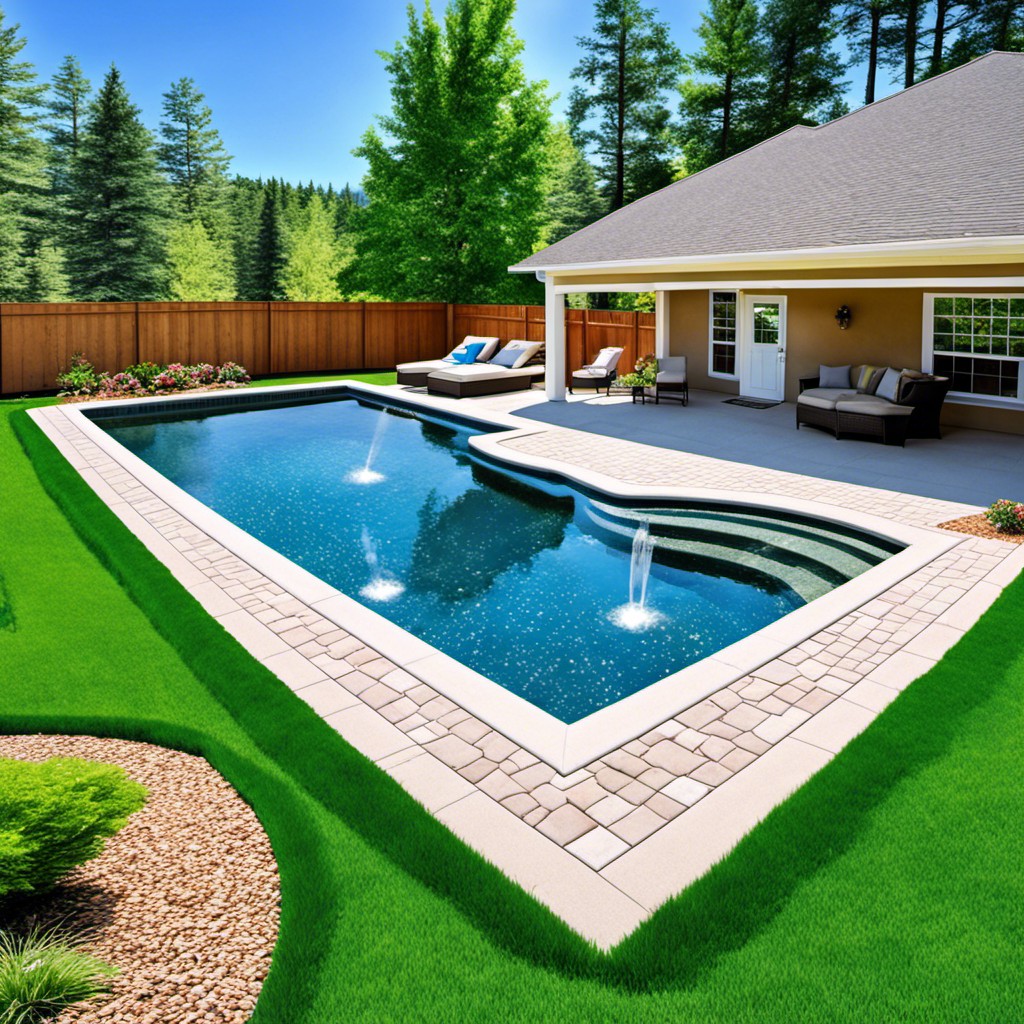
Bromine is a chemical element that has been used as a disinfectant for decades. It works by killing bacteria and other harmful microorganisms in the water.
One of the benefits of using bromine over chlorine is its ability to remain active even at high temperatures, making it ideal for hot tubs and spas. Unlike chlorine which can cause skin irritation or red eyes if not properly balanced, bromine does not have these side effects.
However, there are some downsides to consider when using a bromine pool system. For one thing, it tends to be more expensive than traditional chlorine systems due to its lower availability on the market.
Also worth noting: while less harsh than chlorinated pools overall – especially with regard to odor – some people may experience allergic reactions or respiratory issues from exposure.
UV Pool Sanitization
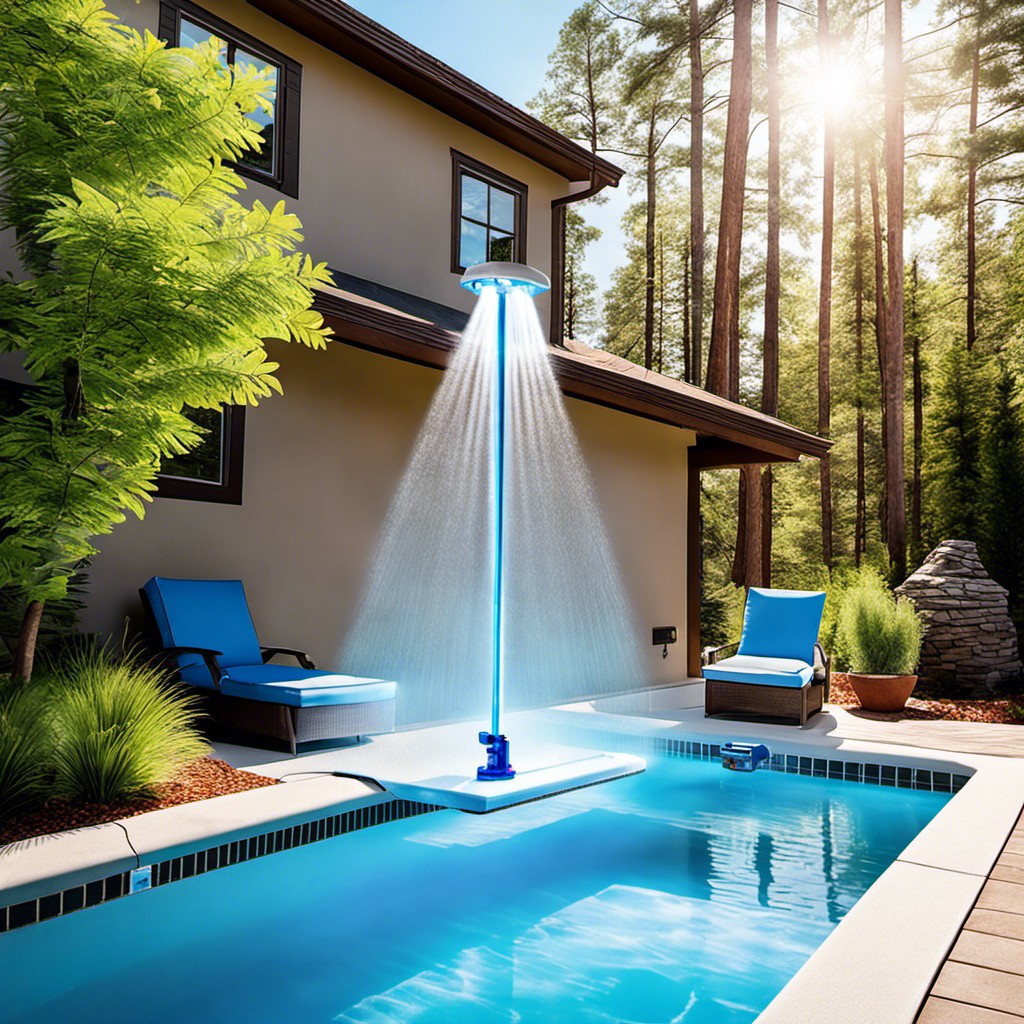
This method uses ultraviolet light to kill bacteria, viruses, and other microorganisms in the water. The process involves passing the pool water through a chamber that contains UV lamps that emit high-intensity ultraviolet rays.
The UV rays destroy the DNA of harmful organisms present in the water, rendering them unable to reproduce or cause infections. Unlike chlorine pools, this method does not produce any chemical byproducts or odors and does not require constant monitoring of pH levels.
UV pool sanitization systems are easy to install and maintain as they do not require any additional chemicals for operation. They also have low energy consumption rates compared to traditional chlorination methods.
However, it’s important to note that while UV sanitation can effectively kill bacteria and viruses in your swimming pool; it cannot remove debris such as dirt or leaves from your swimming area like a filter would do. .
Ozone Pool Systems
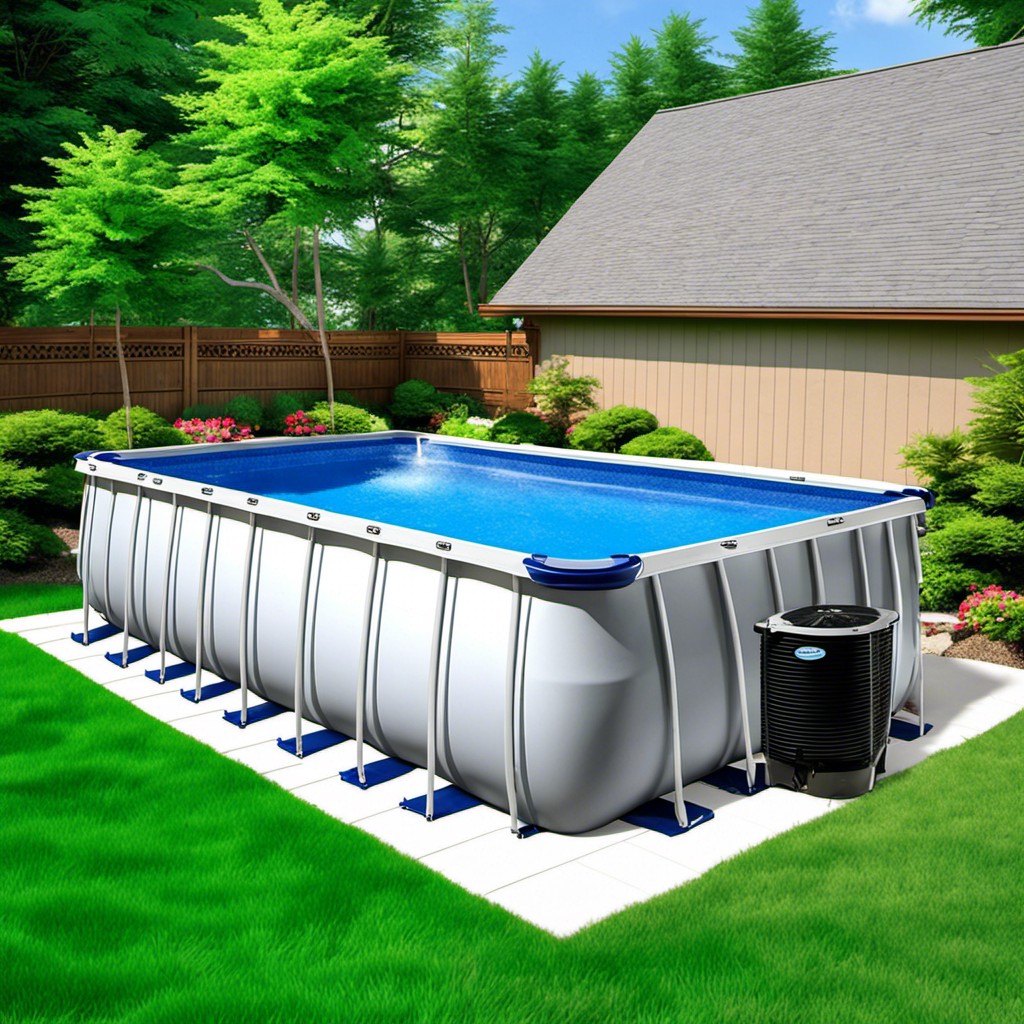
Ozone is a powerful oxidizer that can effectively sanitize your pool water without the use of harsh chemicals. It works by breaking down organic matter and bacteria in the water through oxidation.
One of the main benefits of using an ozone system is that it reduces or eliminates the need for traditional sanitizers like chlorine or bromine, which can cause skin irritation, respiratory problems, and other health issues when used in high concentrations. Because ozone breaks down quickly after use (unlike traditional sanitizers), it leaves no harmful byproducts behind.
Another advantage of using an ozone system is its low maintenance requirements compared to other alternatives such as saltwater pools or mineral systems. While some routine maintenance may be required (such as replacing worn-out parts), overall upkeep costs are relatively minimal.
Mineral Pools
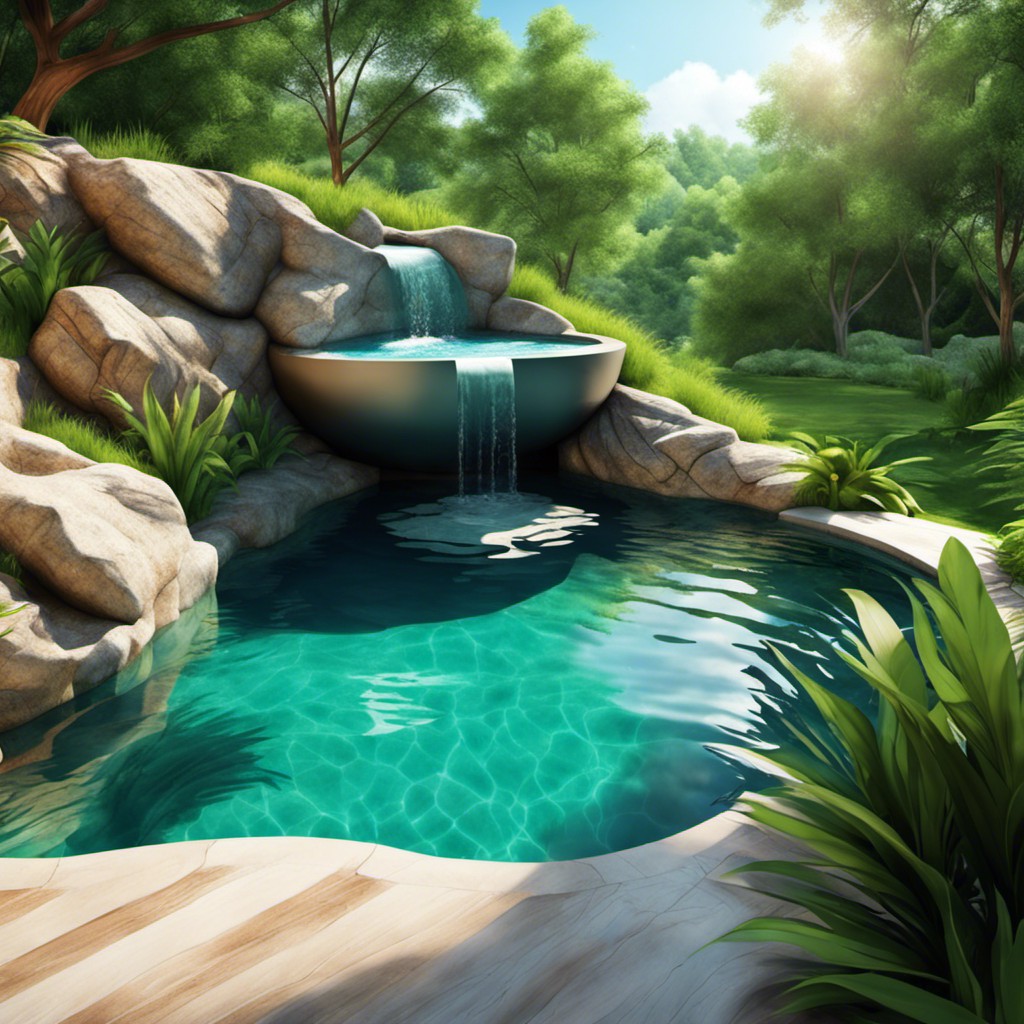
Mineral pools use naturally occurring minerals like magnesium and potassium to sanitize pool water instead of harsh chemicals. These minerals are known for their therapeutic properties and can help soothe sore muscles, reduce stress levels, and improve overall well-being.
One of the biggest advantages of mineral pools is that they require less maintenance than traditional chlorine or saltwater systems. The minerals in the water work together to keep it clean and clear without requiring constant adjustments or additions.
Another benefit is that mineral pools are gentler on your skin, hair, eyes as compared with chlorinated ones which can cause irritation due to high chemical content.
While there may be an initial investment required when installing a mineral pool system (as compared with traditional chlorine), over time it will save you money on maintenance costs while providing a healthier swimming environment for you and your family.
Copper-Silver Ionization
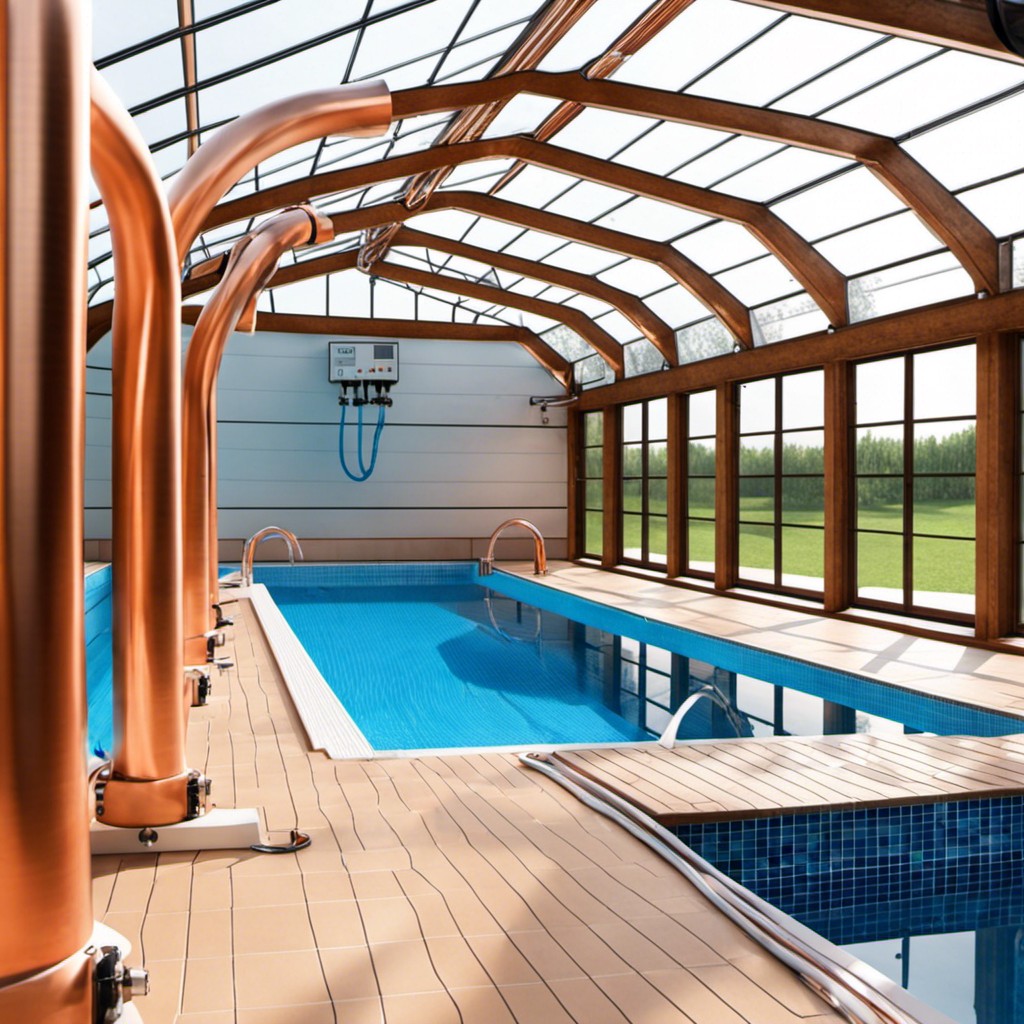
The process involves introducing positively charged copper and silver ions into the pool, which attach themselves to negatively charged bacteria, viruses, and algae in the water. This causes them to break down and become inactive.
One of the benefits of Copper-Silver Ionization is that it reduces or eliminates many of the negative side effects associated with traditional chlorine pools such as skin irritation, red eyes or respiratory problems. It also requires less maintenance than other alternatives like saltwater systems.
However, it’s important to note that Copper-Silver Ionization may not be suitable for all types of swimming pools since its effectiveness can depend on factors such as pH levels in your pool water or how often you use your pool.
Ionizers for Pool Sanitization
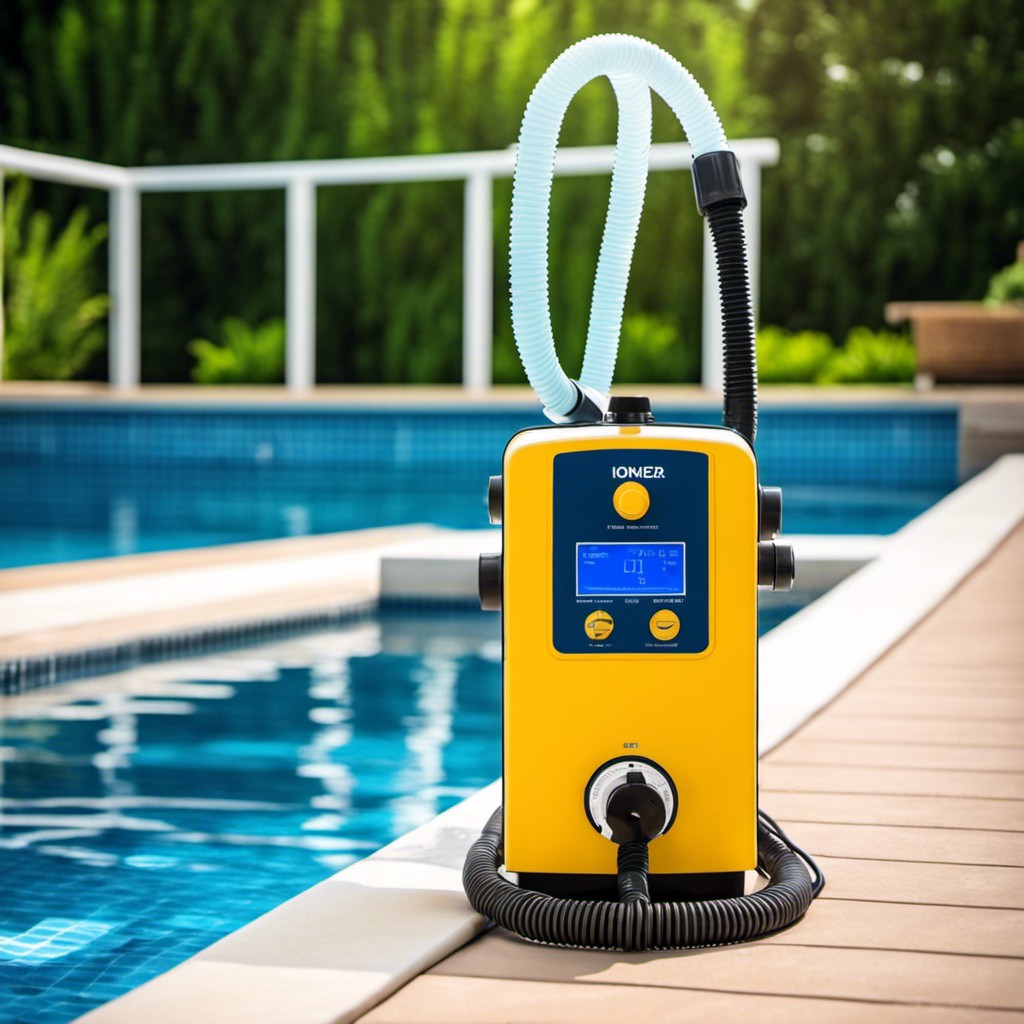
Ionizers use copper or silver ions to sanitize pool water by killing bacteria and algae. The process is simple: the ionizer releases positively charged ions into the water, which attach themselves to negatively charged bacteria and algae cells, causing them to break down.
One of the benefits of using an ionizer is that it reduces your reliance on chemicals like chlorine or bromine. This means less exposure to harsh chemicals for swimmers as well as fewer chemical costs over time.
Another advantage of using an ionizer system is that it requires minimal maintenance compared with traditional chlorination systems. You’ll need only occasional testing and adjustment of pH levels in addition to regular cleaning routines.
However, keep in mind that while copper-silver-ionization can be effective at sanitizing pool water when used correctly; there are some downsides too – such as potential staining from excess metals in hard-water areas if not balanced properly.
PHMB: An Alternative Pool Sanitizer
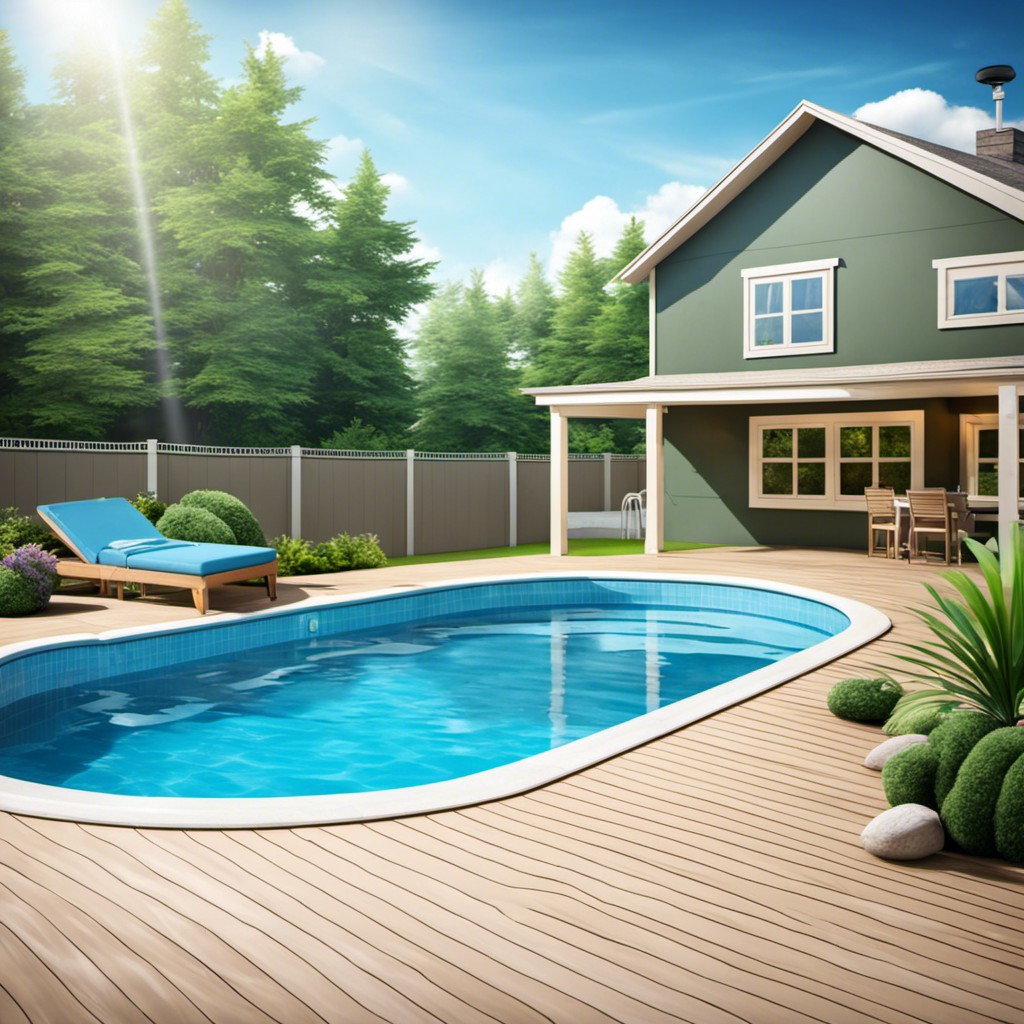
It is a polymer-based sanitizer that works by disrupting the cell membranes of bacteria and algae, effectively killing them. PHMB has been used in contact lens solutions and wound care products for years due to its effectiveness against microorganisms.
One of the benefits of using PHMB as a pool sanitizer is that it does not produce harmful byproducts like chloramines, which can cause eye irritation and respiratory problems. It does not have an odor or taste like chlorine.
However, there are some downsides to consider when using PHMB as well. For one thing, it can be more expensive than traditional chlorine sanitizers upfront but may save money over time due to less maintenance required for your swimming pool equipment.
Another downside is that you need specialized test kits designed specifically for measuring levels of this chemical compound in water since standard testing methods will not work with this type of product – so make sure you’re prepared before making any changes!.
Hydrogen Peroxide Pools

Hydrogen peroxide is a powerful oxidizer that can effectively sanitize pool water without the harsh effects of chlorine. It breaks down into oxygen and water, making it an eco-friendly option for those who want to reduce their carbon footprint.
Hydrogen peroxide pools require less maintenance than traditional chlorine pools, as they do not produce harmful byproducts like chloramines or trihalomethanes. This means you won’t have to worry about strong chemical odors or skin irritation after swimming.
However, it’s important to note that hydrogen peroxide should be used in conjunction with other pool sanitizers such as UV light or copper-silver ionization systems for optimal results. The concentration of hydrogen peroxide needed may vary depending on factors such as pool size and usage frequency.
Natural Swimming Pools

These pools use plants and other natural elements to filter the water instead of chemicals like chlorine or bromine. Natural swimming pools have two zones: the regeneration zone and the swim zone.
The regeneration zone is where aquatic plants grow, which helps to purify the water naturally by removing impurities such as bacteria and algae. The swim zone is where you can enjoy your refreshing dip without worrying about harsh chemicals irritating your skin or eyes.
One of the benefits of having a natural pool is that it’s eco-friendly since it doesn’t require any harmful chemicals that could harm wildlife in nearby streams or rivers if they were accidentally released into them during maintenance procedures.
However, keep in mind that maintaining a natural pool requires more effort than traditional ones because you need to ensure proper plant growth while keeping debris out of both zones so they don’t clog up filters over time.
Solar Pool Ionizers
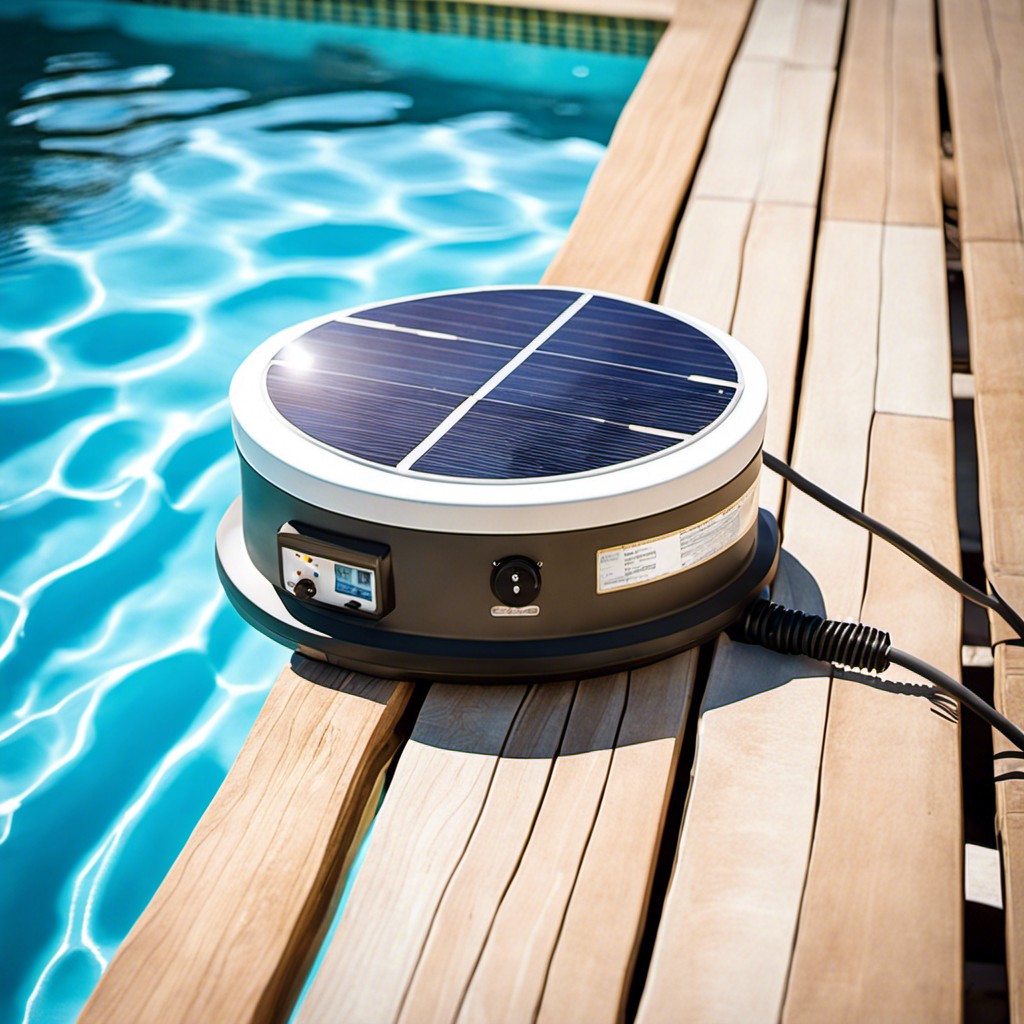
These devices work by using copper and silver ions to sanitize your pool water, killing bacteria and algae without the need for harsh chemicals. The device is powered by solar energy, which means it doesn’t require any electricity or batteries.
The way it works is simple: you place the device in your pool, and as sunlight hits its panels, an electric current flows through a set of electrodes that release copper and silver ions into the water. These ions then attach themselves to harmful microorganisms like bacteria and algae present in your swimming pool’s water supply.
One significant advantage of using a solar-powered ionizer over traditional chlorine pools is that they are much gentler on swimmers’ skin than harsh chemical treatments like chlorine or bromine systems. These devices can save you money on maintenance costs since they don’t require expensive chemicals or regular cleaning.
Ozonators in Swimming Pools
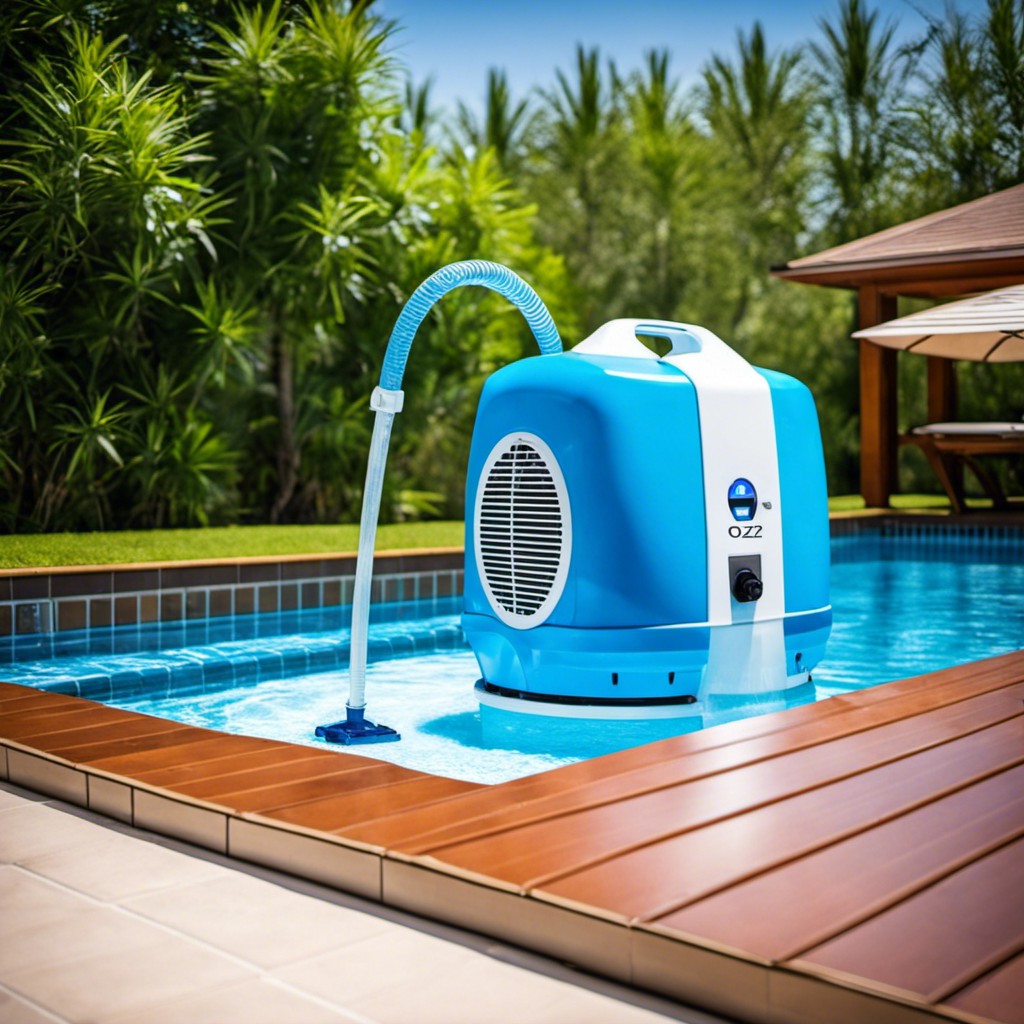
They work by producing ozone gas, which is a powerful oxidizer that can kill bacteria and viruses in the water. Ozone is also effective at breaking down organic matter such as sweat, urine, and other contaminants that can make pool water cloudy or smelly.
One of the benefits of using an ozonator in your swimming pool is that it reduces the need for chlorine or other chemicals. This means you’ll spend less money on maintenance costs over time while still enjoying crystal-clear water.
Another advantage of ozonators is their eco-friendliness. Unlike traditional chemical treatments like chlorine, ozone does not leave behind harmful residues or byproducts in the environment.
However, it’s important to note that ozonators alone may not be enough to keep your pool completely clean and safe for swimming. You will still need some form of filtration system to remove debris from the water before it enters into contact with ozone gas.
Ceramic Filtration
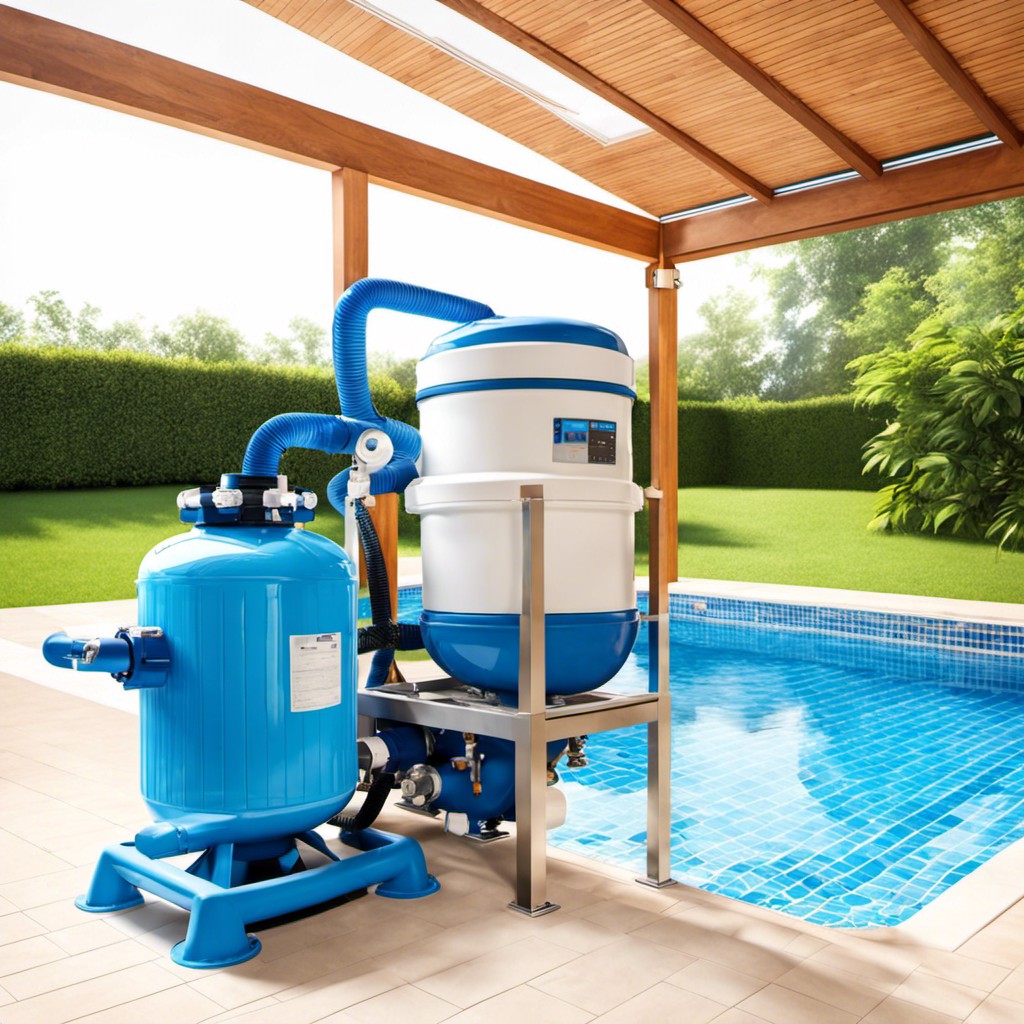
Ceramic filters are made from diatomaceous earth, which is a porous material that traps dirt and debris as water passes through it. Unlike traditional sand or cartridge filters, ceramic filters can be cleaned by simply backwashing them with water.
One of the benefits of using ceramic filtration in your pool is that it doesn’t require any chemicals to operate effectively. This means you won’t have to worry about adding chlorine or other harsh chemicals into your swimming pool water.
Another advantage of using this type of filter system is its longevity; they last longer than traditional sand or cartridge systems because they don’t need frequent replacement due to clogging up with debris.
Activated Carbon Filters
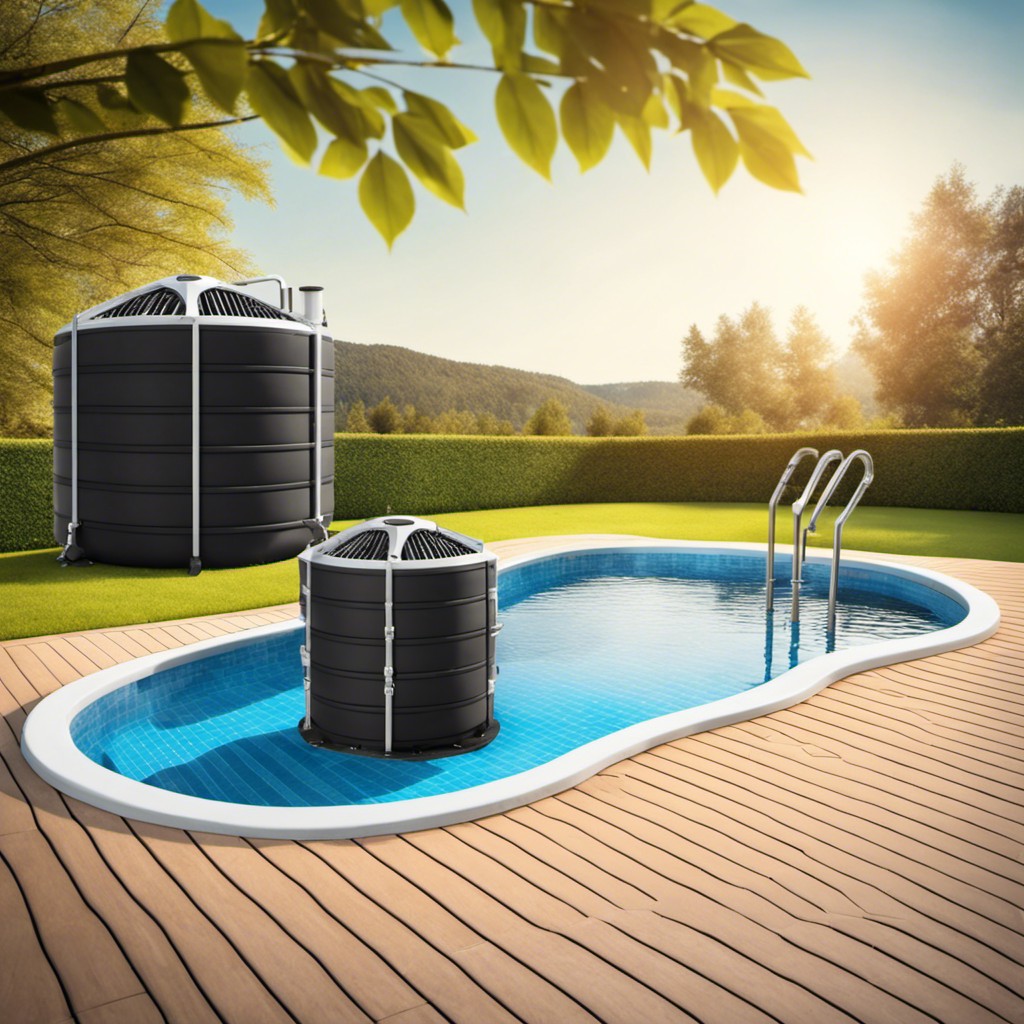
These filters work by removing impurities and contaminants from the water, leaving it clean and clear. Activated carbon has a high surface area that can absorb pollutants such as bacteria, viruses, and chemicals.
The benefits of using activated carbon filters are numerous. They not only remove harmful substances but also improve the taste and odor of pool water.
They require less maintenance than traditional chlorine systems since there are no harsh chemicals involved.
One thing to keep in mind when considering an activated carbon filter for your pool is that they may not be effective against all types of contaminants or algae growths. It’s important to do your research before investing in this type of system.
Zeolite Filters
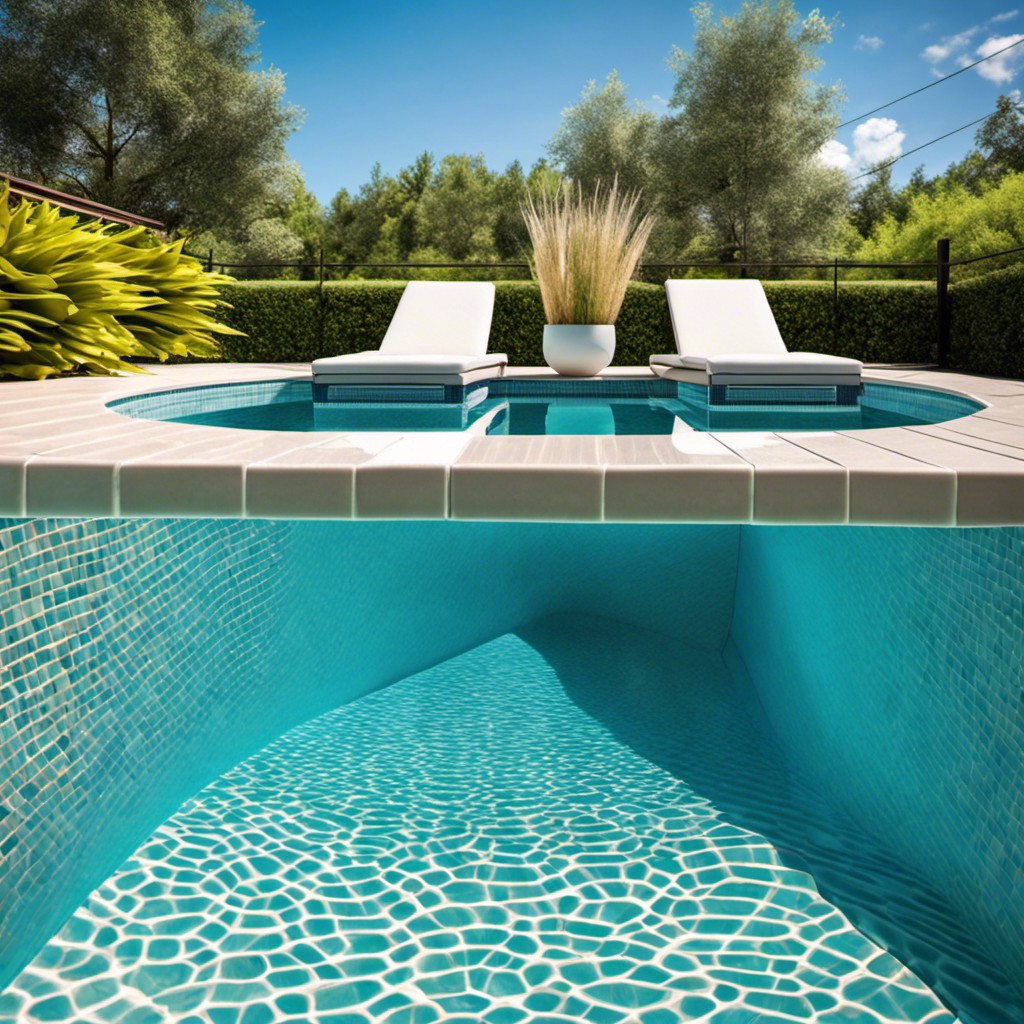
Zeolites are naturally occurring minerals that have been used in water filtration systems for decades. They work by trapping impurities and contaminants in their porous structure, leaving behind clean and clear water.
One of the benefits of using zeolite filters is that they can reduce or eliminate the need for chlorine or other harsh chemicals. This means less maintenance and fewer chemicals being added to your pool on a regular basis.
Another advantage of using zeolites is that they can help balance pH levels in your pool water, which is essential for maintaining healthy swimming conditions. By reducing acidity levels, you’ll also prevent corrosion on metal surfaces around your pool area.
U/V Light Sanitation
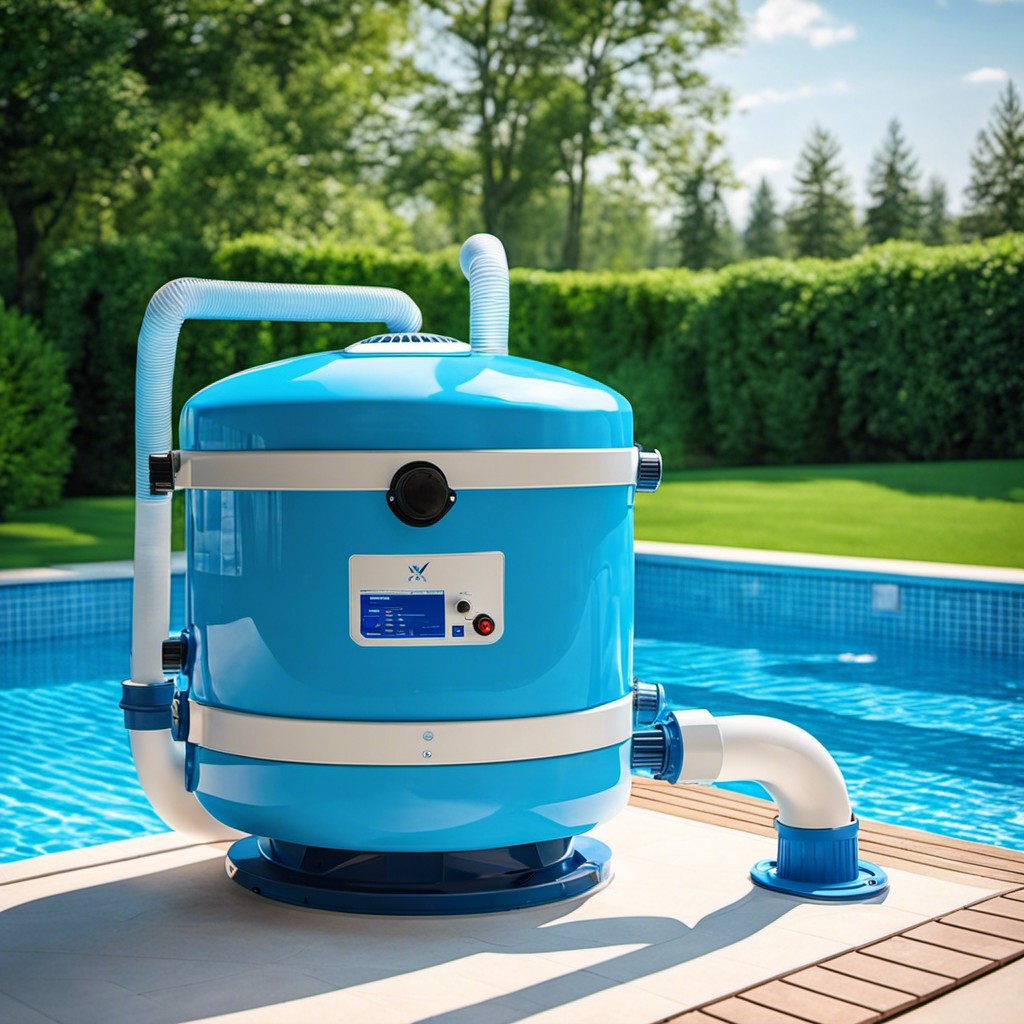
This method uses ultraviolet light to kill bacteria and other microorganisms in the water, making it safe for swimming. The UV system works by passing pool water through a chamber where it is exposed to high-intensity UV-C rays, which destroy harmful pathogens.
One of the benefits of using a UV system for pool sanitation is that it does not produce any harmful byproducts or chemicals like chlorine does. It also requires less maintenance than traditional chlorinated pools since there are no chemicals to add or test regularly.
However, while effective at killing bacteria and viruses, UV systems do not remove debris from the water like filters do. Therefore they should be used alongside an appropriate filtration system such as sand filters or cartridge filters.
Ultrafiltration for Pool Water
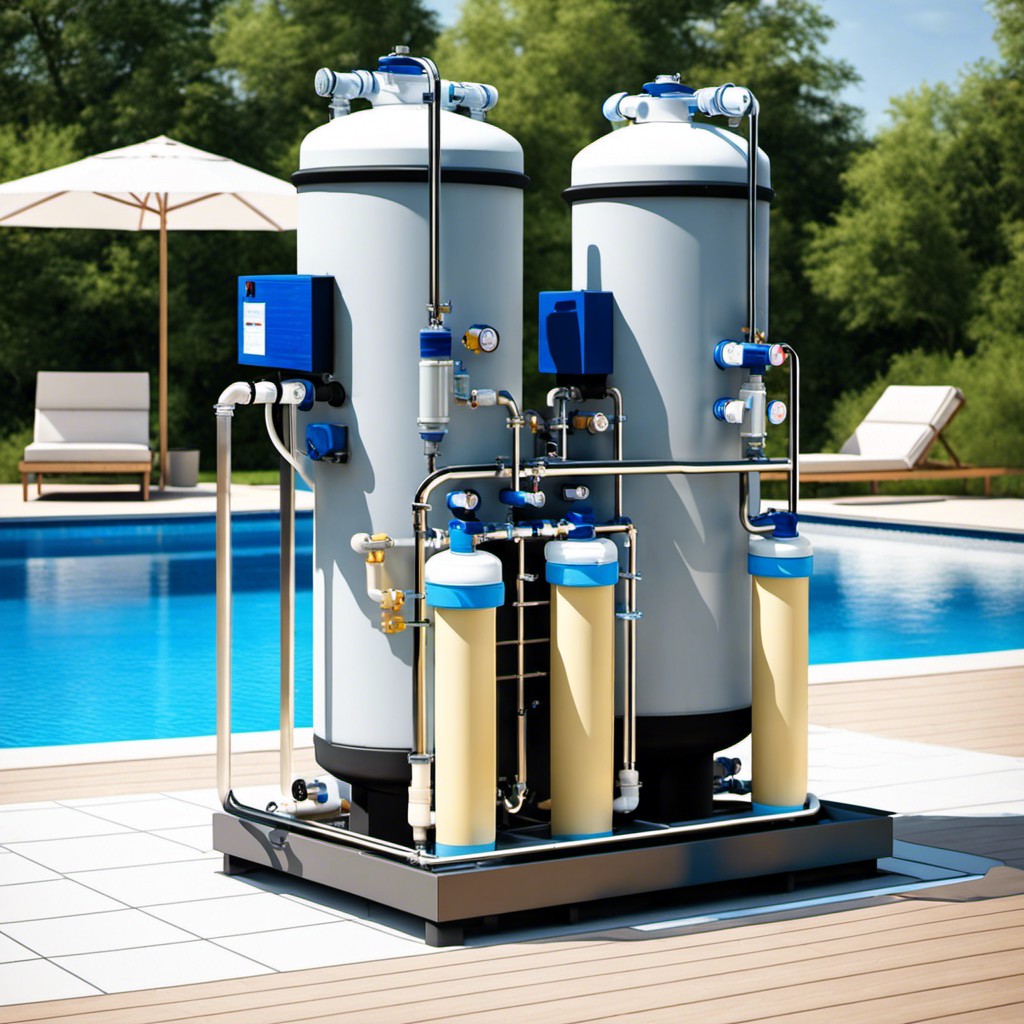
This method can be used to purify pool water, making it crystal clear and safe for swimming. Ultrafiltration systems are becoming increasingly popular as an alternative to traditional chlorine pools because they require less maintenance and use fewer chemicals.
The ultrafiltration system works by forcing the pool water through a membrane that has microscopic pores, which trap particles such as bacteria, viruses, algae spores, and other contaminants. The filtered water then returns back into the pool while the trapped particles are flushed out of the system.
One of the benefits of using an ultrafiltration system is its ability to remove impurities without altering pH levels or adding any chemicals like chlorine or bromine. This means you can enjoy clean and healthy swimming without worrying about skin irritation or respiratory problems caused by harsh chemicals.
Moreover, ultrafilters have low energy consumption compared to other filtration methods like sand filters; hence they save on electricity bills in addition to being eco-friendly alternatives for your home’s outdoor space.
Pristine Blue: A Chlorine-free Solution
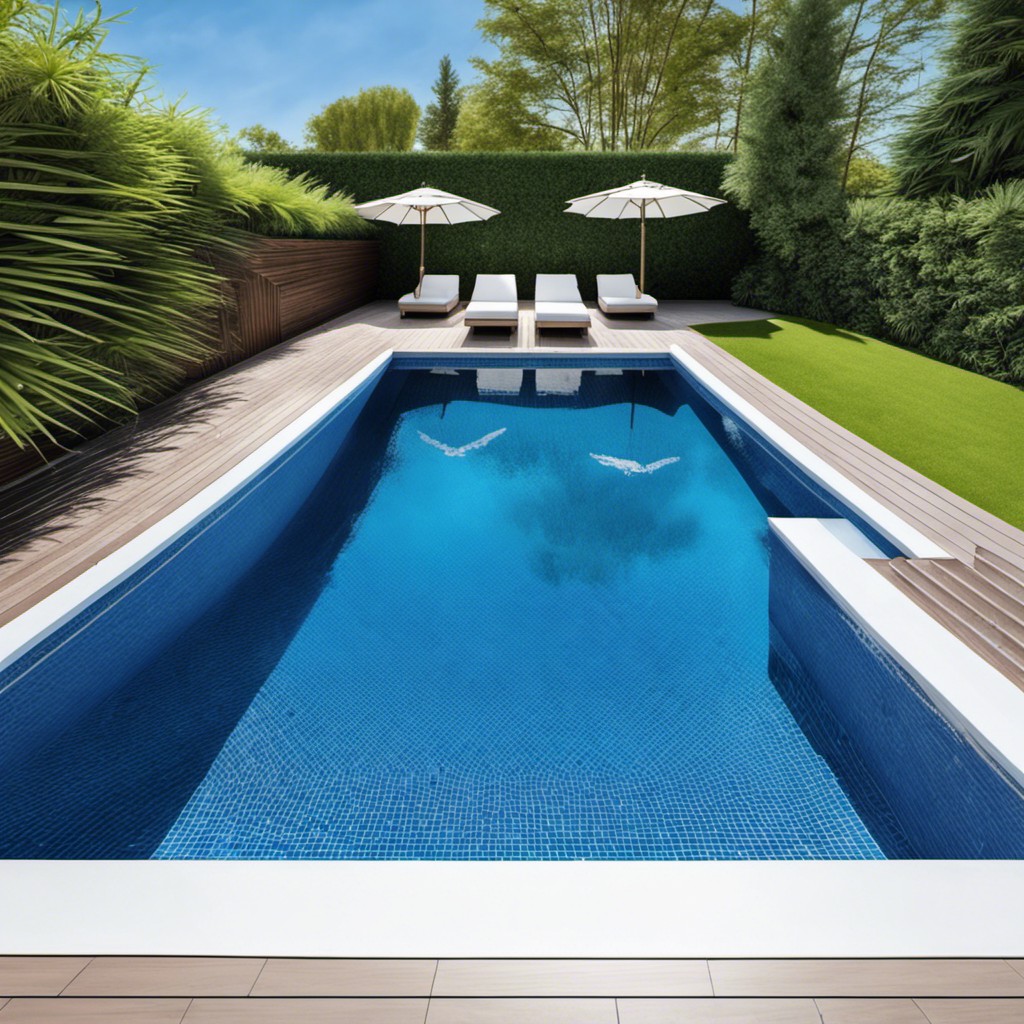
It is an EPA-registered algaecide and bactericide that uses copper ions to sanitize the water. Pristine Blue provides crystal clear water without any harsh chemicals, making it safe for swimmers with sensitive skin or allergies.
One of the benefits of using Pristine Blue is its ease of use. Unlike traditional chlorine pools, there are no complicated chemical balancing acts required when using this product.
Simply add the recommended amount to your pool every two weeks and enjoy clean, clear water all season long.
Another advantage of Pristine Blue is its longevity in keeping your pool clean and sanitized for up to six months at a time! This means fewer trips to the store for chemicals or maintenance supplies – saving you both time and money in the long run.
Reduction in Water Temperature
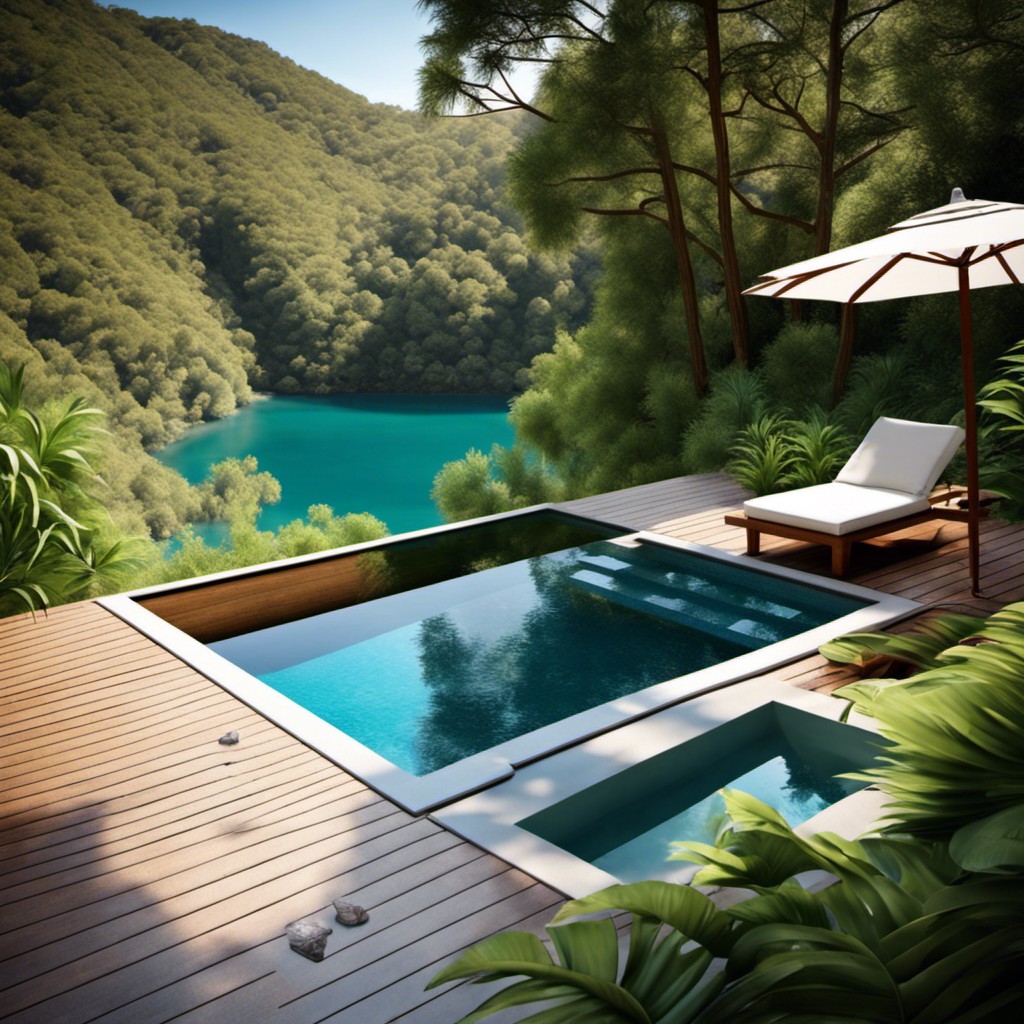
When water is heated, it creates a breeding ground for bacteria and algae, which means more chemicals are required to keep it clean. By lowering the temperature of your pool by just a few degrees, you can significantly reduce the growth of these microorganisms and decrease your reliance on harsh chemicals.
Not only does reducing water temperature save money on chemical costs but also energy bills as less heating is required. It’s important to note that this method alone may not completely replace chlorine or other sanitizers but rather complement them.
Finding the Best Alternatives to Chlorine for Swimming Pools
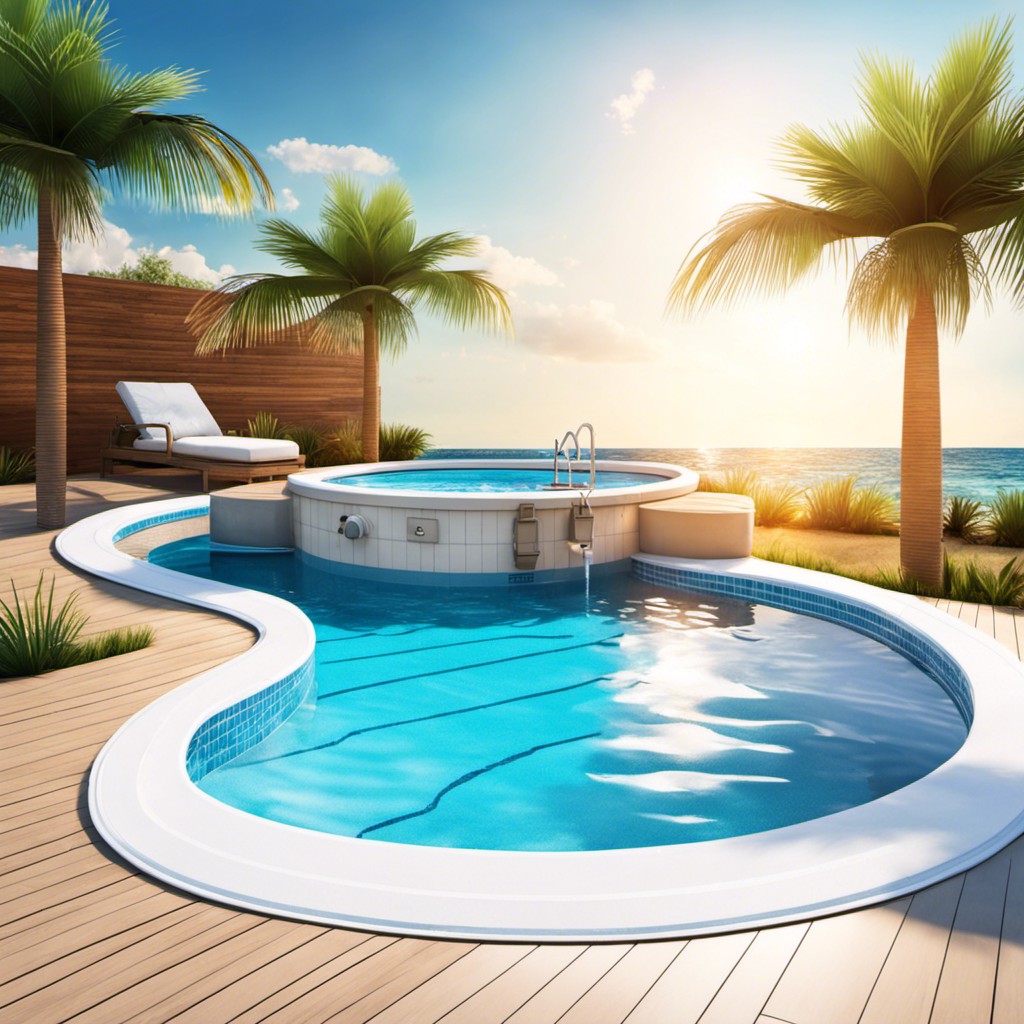
First and foremost, you want a solution that is effective in keeping your pool clean and safe for swimmers. Secondly, you want an option that is eco-friendly and budget-friendly.
One of the most popular alternatives to chlorine pools is saltwater systems. These systems use salt cells installed in the filtration system which convert salt into natural chlorine through electrolysis.
This process provides a more natural swimming experience without harsh chemicals or odors.
Another option worth considering is UV pool sanitization where ultraviolet light kills bacteria and viruses present in water without using any chemicals at all! Similarly, ozone generators can be used as they produce ozone gas which oxidizes contaminants like algae or bacteria present in water.
Mineral pools are also gaining popularity as they use minerals such as copper or silver ions instead of traditional chlorination methods while still providing crystal clear water quality with fewer irritants than other options on this list!.
Ultimately, finding the best alternative depends on what works best for your specific needs – whether it’s cost-effectiveness or environmental impact – so do some research before making any decisions about switching from traditional chlorinated pools!.
FAQ
What can I substitute for chlorine in a pool?
You can substitute chlorine in a pool with alternatives like bromine, ionizers, ozonators, or PHMB, but keep in mind that all four have drawbacks, including cost, and some may still require minimal chlorine usage.
Is there a natural alternative to chlorine in a pool?
Yes, ozone is a natural alternative to chlorine in a pool, being twice as effective, odorless, and also used to disinfect drinking water.
Can baking soda replace chlorine in a pool?
No, baking soda cannot replace chlorine in a pool, as it is used to adjust pH levels while chlorine is meant for sanitization and superchlorination is the recommended fix for cloudy pool water.
Can a pool be safe without chlorine?
Yes, a pool can be safe without chlorine, but the risk of bacterial growth and potential health damage should be carefully managed to maintain the safety and benefits of swimming.
What are the pros and cons of using saltwater systems instead of chlorine in a pool?
Pros of saltwater systems include lower chlorine levels and reduced skin irritation, while cons involve higher upfront costs and potential corrosion issues.
How do UV and ozone pool sanitation systems compare to chlorine-based methods?
"UV and ozone pool sanitation systems are considered more eco-friendly and lower in chemical usage compared to chlorine-based methods."
Are there any eco-friendly solutions to minimize chemical usage for pool maintenance?
Eco-friendly solutions to minimize chemical usage for pool maintenance include using alternative sanitizers, such as saltwater systems, UV light, ozone, or mineral-based purifiers.
Recap
Liked this article? Here's what you can read next:
